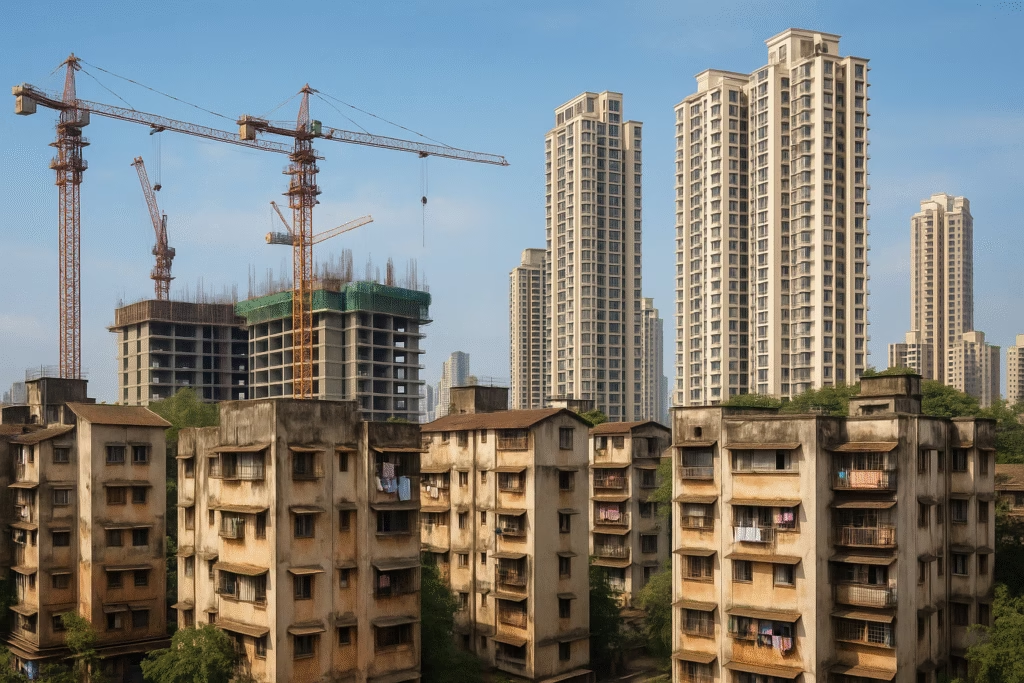
Redevelopment of old and dilapidated buildings in Mumbai has become a necessity due to space constraints and aging infrastructure. Housing societies, especially Co-operative Housing Societies (CHS), must follow certain regulations and bye-laws while undertaking redevelopment. One of the most important provisions guiding this process is Section 79A of the Maharashtra Co-operative Societies Act, 1960.
This article explains Sec 79A, its implications on CHS bye-laws, and how it affects the redevelopment process, including the appointment of a Project Management Consultant (PMC).
What is Section 79A?
Section 79A empowers the State Government to issue binding directives to co-operative societies for securing the proper implementation of the provisions of the Maharashtra Co-operative Societies Act. When applied to redevelopment, it provides a legal framework that ensures transparency, protects members’ interests, and promotes systematic execution of the redevelopment process.
Government Circular under Sec 79A for Redevelopment
In 2009 and later updated in 2019, the Maharashtra Government issued a Section 79A directive specifically for the redevelopment of CHS buildings. This directive outlines the standard procedure that societies must follow, which includes:
- Appointment of a Project Management Consultant (PMC)
- Transparency in developer selection
- Member consent requirements
- Financial feasibility and planning
- Timely approvals and execution
Key Provisions Under 79A Directive
1. Appointment of a Revelopment PMC
A Redevelopment Project Management Consultant (PMC) plays a crucial role in advising societies throughout the redevelopment process. As per Sec 79A guidelines:
- The CHS must appoint a Redevelopment PMC through a general body resolution.
- The PMC is responsible for preparing the feasibility report, tendering process, and ensuring legal and technical due diligence.
- This avoids exploitation by developers and protects members’ interests.
2. Consent of Members
Under CHS bye-laws and Sec 79A, a minimum of 51% consent from eligible members is required to initiate redevelopment. The process must be democratic, with proper notice, documentation, and resolution passed in a general body meeting.
3. Developer Selection
The selection of a developer must be transparent and competitive. The PMC helps in:
- Floating tenders
- Evaluating offers
- Presenting the best option to the members
A final selection is made based on a general body resolution with at least two-thirds majority.
How CHS Bye-Laws and Sec 79A Work Together
CHS bye-laws provide a foundational legal structure for housing society operations. When read with Sec 79A directives, they offer a complete guide for undertaking safe and compliant redevelopment.
For example:
- Bye-laws ensure that member meetings are conducted properly.
- Sec 79A adds statutory backing for transparency, consultant appointments, and financial safety measures.
Importance of Following Sec 79A in Redevelopment
- Legal Compliance: Failure to follow Sec 79A can result in legal disputes or cancellation of redevelopment projects.
- Member Protection: Safeguards against fraud, coercion, or inadequate compensation.
- Efficient Planning: Involving a PMC ensures that the process is structured and professionally managed.
Conclusion
Redevelopment of CHS buildings in Mumbai is a complex but essential process. Understanding and implementing Section 79A directives along with the CHS bye-laws is critical to ensure transparency, fairness, and legality. Societies must prioritize the appointment of a qualified PMC, ensure democratic decision-making, and follow all procedures outlined under Sec 79A to avoid future complications.
By staying compliant and well-informed, housing societies can achieve successful redevelopment that benefits all members while upgrading Mumbai’s aging infrastructure.
